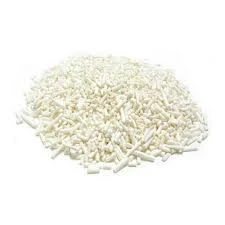
chlorine tcca
Understanding Chlorine and TCCA A Comprehensive Overview
Chlorine is an essential element widely utilized in various applications, with its most significant role being in water treatment processes. One of the most effective chlorine compounds used in water disinfecting treatments is Trichloroisocyanuric Acid (TCCA). This article aims to delve into the importance, properties, applications, and safety considerations surrounding TCCA as a vital source of chlorine in different domains.
What is TCCA?
Trichloroisocyanuric Acid, commonly referred to as TCCA, is a chlorine-releasing compound characterized by a white crystalline structure. With a chemical formula of C3Cl3N3O3, TCCA belongs to a class of chemicals known as chlorinated isocyanurates. It is primarily used as a disinfectant, bactericide, and algicide. Notably, TCCA is favored for its stability and effectiveness in providing chlorine slowly over time, making it an ideal choice for continuous disinfection processes.
Properties of TCCA
One of the notable properties of TCCA is its high chlorine content, typically around 90%. This high level of chlorine ensures that even small amounts of TCCA can lead to effective sanitation. TCCA is also stable under normal conditions and retains its disinfectant properties over extended periods, making it an efficient storage option compared to liquid chlorine. The compound dissolves well in water, releasing chlorine gradually, which helps in maintaining consistent disinfection levels in various applications.
Applications of TCCA
TCCA is widely applied in numerous industries for its effective disinfection capabilities. Here are some key applications
1. Water Treatment TCCA is extensively used in public water systems, swimming pools, and aquaculture to ensure that water remains free from harmful pathogens. Its ability to release chlorine slowly helps in maintaining residual chlorine levels that deter microbial growth.
chlorine tcca

2. Household Cleaning Products Many household cleaners and disinfectants incorporate TCCA to enhance their antimicrobial efficacy, offering protection against bacteria, viruses, and fungi on various surfaces.
3. Industrial Applications In industries such as textiles and pulp and paper, TCCA is employed for bleaching and disinfection, facilitated by its potent oxidation properties.
4. Agriculture TCCA is used in agricultural practices to prevent diseases in crops through water treatment in irrigation systems. It ensures that water used for watering crops is free of pathogens that could jeopardize plant health.
5. Food Processing The food industry utilizes TCCA for sanitizing equipment and surfaces to meet hygiene standards and prevent foodborne illnesses.
Safety Considerations
While TCCA is classified as a safe and effective disinfectant, it is essential to acknowledge certain safety considerations when handling this compound. TCCA is a strong oxidizer and can pose fire hazards when in contact with flammable materials. Therefore, proper storage in a cool, dry place away from incompatible substances is vital.
When using TCCA, protective gear, such as gloves and goggles, should be worn to prevent skin and eye irritation. In case of accidental exposure or inhalation, immediate medical attention should be sought. Additionally, users must follow the recommended dosages and guidelines to avoid adverse effects on health and the environment.
Conclusion
Trichloroisocyanuric Acid (TCCA) is an invaluable chlorine source with a myriad of applications across various sectors. Its effectiveness in water treatment, coupled with its stable and gradual chlorine release, highlights its superiority over many other disinfectants. However, as with any chemical substance, adherence to safety protocols is crucial to ensure the well-being of users and the environment. Understanding TCCA’s properties and applications not only underscores its importance in maintaining public health but also emphasizes the need for responsible usage in various industries.
-
Sodium Dichloroisocyanurate Safety Handling ProtocolsNewsJul.29,2025
-
Mining Chemicals for Copper Extraction Processes GuideNewsJul.29,2025
-
Fertilizer for Sale Shipping and Storage TipsNewsJul.29,2025
-
Dimethyl Disulfide as Sulfurizing AgentNewsJul.29,2025
-
Benzotriazole Safety Data Handling and Storage GuidelinesNewsJul.29,2025
-
Ammonium Bicarbonate Safety Handling Storage GuidelinesNewsJul.29,2025
-
The Transformative Role Of Trichloroisocyanuric Acid in Water TreatmentNewsJul.23,2025
Hebei Tenger Chemical Technology Co., Ltd. focuses on the chemical industry and is committed to the export service of chemical raw materials.
-

view more DiethanolisopropanolamineIn the ever-growing field of chemical solutions, diethanolisopropanolamine (DEIPA) stands out as a versatile and important compound. Due to its unique chemical structure and properties, DEIPA is of interest to various industries including construction, personal care, and agriculture. -

view more TriisopropanolamineTriisopropanolamine (TIPA) alkanol amine substance, is a kind of alcohol amine compound with amino and alcohol hydroxyl, and because of its molecules contains both amino and hydroxyl. -

view more Tetramethyl Thiuram DisulfideTetramethyl thiuram disulfide, also known as TMTD, is a white to light-yellow powder with a distinct sulfur-like odor. It is soluble in organic solvents such as benzene, acetone, and ethyl acetate, making it highly versatile for use in different formulations. TMTD is known for its excellent vulcanization acceleration properties, which makes it a key ingredient in the production of rubber products. Additionally, it acts as an effective fungicide and bactericide, making it valuable in agricultural applications. Its high purity and stability ensure consistent performance, making it a preferred choice for manufacturers across various industries.











